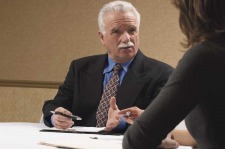On interviewing
PRIME: Do you have any interviewing tips for boomers who might be facing a younger reviewer --or potential boss?
Doff: Today's workforce appreciates diversity of many kinds.
Diversity in age can be a good thing. But you don t have to wear your age as a badge " it is one part of who you are. It s good to be knowledgeable about current trends and technologies, [but you also want] to seem like it s natural for you.
For example, if you mention that you know about Facebook or LinkedIn, try not to make it sound like a big deal that you know about it.
You seem even more in the know if what you know feels natural rather than forced.
Nichols: Preparing for the interview is most important. Do your homework " research the company, position and management if possible.
Know the culture it s part of the homework. What I ve learned in 30 years of doing this is there s you and there's culture and culture is always going to win.
Once you ve done the homework, follow these simple guidelines for a good interview:
-- Be prepared.
-- Look good (appearance)
-- Be punctual.
-- Be aware of body language.
-- Carry a portfolio.
-- Be sincere and enthusiastic.
-- Say thank you.
-- Smile
Nichols: Body language is important eye contact, the way you fold your arms, hold your hands. You want to be [or at least appear!] relaxed. Put your hands in your lap. Don t sit back in the chair, sit neutral or on the edge of the chair.
You may answer a question one way, but your body may say something else.
Doff: Before I go into an interview, I also write down the qualities I want to bring in -- confidence, energy, a positive attitude, etc.
What we feel comes through in body language, and when I write down what I want to feel, it makes it easier not to dwell on fears [and project the image I want].
Nichols: After the interview, send him [or her] an e-mail thank-you, but also write a handwritten not and put a stamp on it. It will probably be the only handwritten note he gets.
